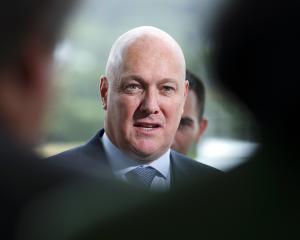In what seems more like a futuristic vision, science fiction has just become science fact, with Gore the first place in New Zealand to use robots to provide interactive healthcare to humans.
After a successful trial at Selwyn Retirement Village in Auckland, Gore Health is rolling out a non-human workforce of six in its GP practice and patients' homes in a move designed to reduce costs, save staff time, improve patients' health and extend independent living and provide company for long-term, chronic-care patients or the elderly.
The mobile robots can take vital signs, such as blood pressure and heart rate, which are transmitted to clinicians and caregivers. In an emergency, they can transmit text messages indicating a problem. Voice-recognition software allows them to communicate with patients, including reminding them to take medication, as well as provide companionship.
Mobile robots are already found in various industries, often on assembly lines, in the military, and as consumer products such as vacuum cleaners. Some robots are already used in healthcare environments overseas.
New Zealand's futuristic face of healthcare - known as healthbots - comes from a joint research project between UniServices, the University of Auckland and the Electronic and Telecommunications Research Institute in Korea. The project is supported by the New Zealand and Korean Governments and the developers hope their robots will create new high-value export opportunities for New Zealand.
Other healthcare providers here are keen to use robots if they work successfully in Gore.
The possibilities of the technology are being embraced by Gore Health, with chief executive Karl Metzler saying staff and management were excited and privileged to be part of the ground-breaking development. The project will certainly further enhance Gore Health's reputation as an innovative healthcare operator backed by a generous, dedicated community.
The locally-governed entity runs the community-owned Gore Hospital and its associated health services including the Gore Health Centre GP practice, and is setting up a $220,000 centre for rural health development in association with the Southern Institute of Technology and the Gore Host Lions Club.
The centre will be used for research and innovation, will double as short-term accommodation for health professionals and aims to address the struggle to attract doctors to rural areas and reduce the cost of locums.
The Gore GP practice is one of 32 nationwide chosen to trial E-chat, an electronic health risk assessment tool that allows patients to provide details to their doctor about their health while waiting for appointments.
It is also trialling with SIT a remote consulting tool VitelMed, which allows patients or nurses to virtually connect with a doctor.
There is no doubting the benefits of the various technologies as the population ages, healthcare needs and the pressure on the health system increase, and staffing rural healthcare facilities remains difficult. And it is exciting Gore is leading some of the changes.
But, as in other areas of our rapidly evolving world, alongside the benefits there will also be those who question some of the effects of technology - and what it leaves in its wake.
Social networking websites have changed the way we communicate, video and online gaming have changed the way we play, interactive electronic devices have changed the way we exercise. And while robots might now be able to check us over, communicate remotely with doctors, provide companionship for those living in isolation, and do goodness knows what in the future, will they really ever fully replace the need for good old-fashioned human contact - particularly in times of need? Only time will tell, but we doubt it.
Those with such concerns would perhaps do well to consider Mr Metzler's own explanation about the role of the robots: ''It's not about replacing doctors or nurses, it's about complementing and supporting their roles,'' he said. On that basis, few people would not hope the project is a success.












